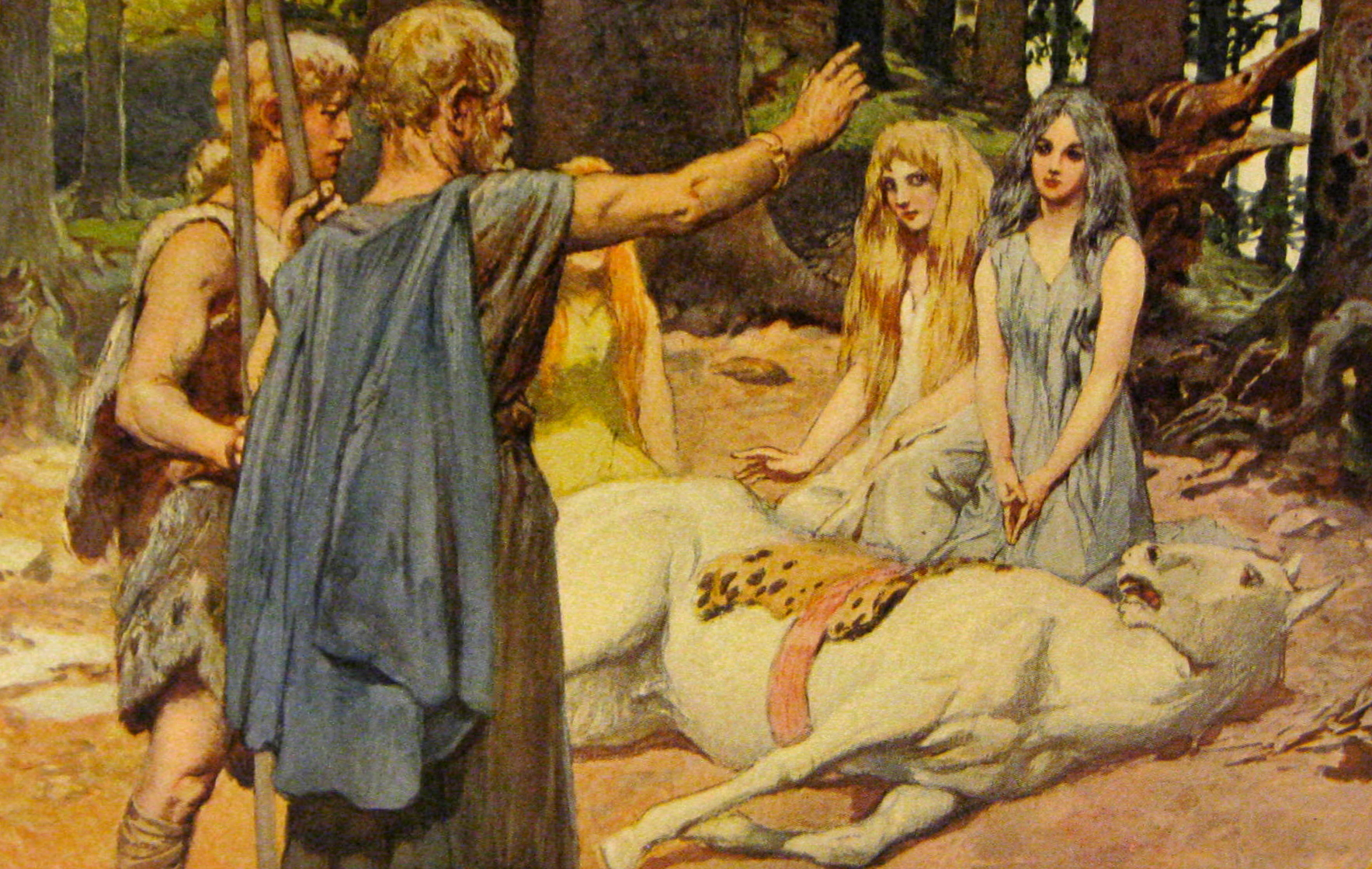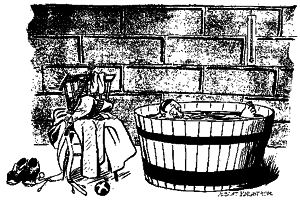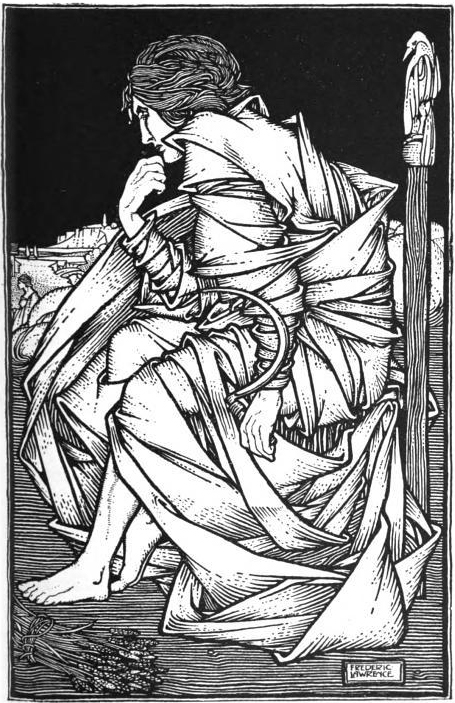|
List Of Germanic Deities
In Germanic paganism, the indigenous religion of the ancient Germanic peoples who inhabited Germanic Europe, there were a number of different gods and goddesses. Germanic deities are attested from numerous sources, including works of literature, various chronicles, runic inscriptions, personal names, place names, and other sources. This article contains a comprehensive list of Germanic deities outside the numerous Germanic Matres and Matronae inscriptions from the 1st to 5th century CE. Gods Goddesses Pseudo-deities and purported deities * Astrild, a synonym for the Roman deity Amor or Cupid invented and used by Nordic Baroque and Rococo authors * Frau Berchta, a purported deity and female equivalent of Berchtold proposed by Jacob Grimm * , a purported deity potentially stemming from a folk etymologyMeyers Großes Konversations-Lexikon, Band 2. Leipzig 1905, S. 832. * Holda, a purported deity proposed by Jacob Grimm * Jecha, a purported deity potentially stemming fro ... [...More Info...] [...Related Items...] OR: [Wikipedia] [Google] [Baidu] |
Wodan Heilt Balders Pferd By Emil Doepler
Odin (; from non, Óðinn, ) is a widely revered god in Germanic paganism. Norse mythology, the source of most surviving information about him, associates him with wisdom, healing, death, royalty, the gallows, knowledge, war, battle, victory, sorcery, poetry, frenzy, and the runic alphabet, and depicts him as the husband of the goddess Frigg. In wider Germanic mythology and paganism, the god was also known in Old English as ', in Old Saxon as , in Old Dutch as ''Wuodan'', in Old Frisian as ''Wêda'', and in Old High German as , all ultimately stemming from the Proto-Germanic theonym *''Wōðanaz'', meaning 'lord of frenzy', or 'leader of the possessed'. Odin appears as a prominent god throughout the recorded history of Northern Europe, from the Roman occupation of regions of Germania (from BCE) through movement of peoples during the Migration Period (4th to 6th centuries CE) and the Viking Age (8th to 11th centuries CE). In the modern period, the rural folklore of Germanic ... [...More Info...] [...Related Items...] OR: [Wikipedia] [Google] [Baidu] |
Bragi
Bragi (; Old Norse: ) is the skaldic god of poetry in Norse mythology. Etymology The theonym Bragi probably stems from the masculine noun ''bragr'', which can be translated in Old Norse as 'poetry' (cf. Icelandic ''bragur'' 'poem, melody, wise') or as 'the first, noblest' (cf. poetic Old Norse ''bragnar'' 'chiefs, men', ''bragningr'' 'king'). It is unclear whether the theonym semantically derives from the first meaning or the second. A connection has been also suggested with the Old Norse '' bragarfull'', the cup drunk in solemn occasions with the taking of vows. The word is usually taken to semantically derive from the second meaning of ''bragr'' ('first one, noblest'). A relation with the Old English term ''brego'' ('lord, prince') remains uncertain. ''Bragi'' regularly appears as a personal name in Old Norse and Old Swedish sources, which according to linguist Jan de Vries might indicate the secondary character of the god's name. Attestations Snorri Sturluson writ ... [...More Info...] [...Related Items...] OR: [Wikipedia] [Google] [Baidu] |
Sceaf
Sceafa ( ang, Scēafa , also ''Scēaf'', ''Scēf'') was an ancient Lombardic king in English legend. According to his story, Sceafa appeared mysteriously as a child, coming out of the sea in an empty skiff. The name also appears in the corrupt forms ''Seskef'', ''Stefius'', ''Strephius'', and ''Stresaeus''. Though the name has historically been modernized Shava (and Latinized Scefius), J.R.R. Tolkien used the correctly constructed modern English spelling ''Sheave''. ''Widsith'' The Old English poem ''Widsith'', line 32, in a listing of famous kings and their countries, has ''Sceafa Longbeardum'', so naming Sceafa as ruler of the Lombards. In ''Origo Gentis Langobardorum'' the Lombards' origins are traced to an "island" in the north named Scadan or Scandan ("Scandinavia"). But neither this account or any other mentions Sceafa among their later kings or gives the names of any kings that ruled them in the land of their origin where they were said to have been known as the Winnili. ... [...More Info...] [...Related Items...] OR: [Wikipedia] [Google] [Baidu] |
Hermóðr
Hermóðr (Old Norse: , " war- spirit";Orchard (1997:83). anglicized as Hermod) is a figure in Norse mythology, a son of the god Odin and brother of Baldr. He is often considered the messenger of the gods. Attestations ''Prose Edda'' Hermóðr appears distinctly in section 49 of the '' Prose Edda'' book ''Gylfaginning''. There, it is described that the gods were speechless and devastated at the death of Baldr, unable to react due to their grief. After the gods gathered their wits from the immense shock and grief of Baldr's death, Frigg asked the Æsir who amongst them wished "to gain all of her love and favor"Byock (2005:66). by riding the road to Hel. Whoever agreed was to offer Hel a ransom in exchange for Baldr's return to Asgard. Hermóðr agreed to this and set off with Sleipnir to Hel. Hermóðr rode Odin's horse Sleipnir for nine nights through deep and dark valleys to the Gjöll bridge covered with shining gold, the bridge being guarded by the maiden Móðguðr 'Ba ... [...More Info...] [...Related Items...] OR: [Wikipedia] [Google] [Baidu] |
Heimdallr
In Norse mythology, Heimdall (from Old Norse Heimdallr) is a god who keeps watch for invaders and the onset of Ragnarök from his dwelling Himinbjörg, where the burning rainbow bridge Bifröst meets the sky. He is attested as possessing foreknowledge and keen senses, particularly eyesight and hearing. The god and his possessions are described in enigmatic manners. For example, Heimdall is gold-toothed, "the head is called his sword," and he is "the whitest of the gods." Heimdall possesses the resounding horn Gjallarhorn and the golden-maned horse Gulltoppr, along with a store of mead at his dwelling. He is the son of Nine Mothers, and he is said to be the originator of social classes among humanity. Other notable stories include the recovery of Freyja's treasured possession Brísingamen while doing battle in the shape of a seal with Loki. The antagonistic relationship between Heimdall and Loki is notable, as they are foretold to kill one another during the events of Ragn ... [...More Info...] [...Related Items...] OR: [Wikipedia] [Google] [Baidu] |
Ögmundar þáttr Dytts
''Ögmundar þáttr dytts ok Gunnars helmings'' is one of the Icelandic '' þættir''. It was written in the 14th century. It relates the story of Ögmundr dyttr, a cousin of Víga-Glúmr from '' Víga-Glúms saga''. He is insulted in Norway and achieves revenge in a clever way. The second part of the saga relates the adventures of Gunnarr helmingr and his interaction with a cult of Freyr in Sweden. Gunnar was suspected of manslaughter and escaped to Sweden, where people still blóted to Freyr Freyr (Old Norse: 'Lord'), sometimes anglicized as Frey, is a widely attested god in Norse mythology, associated with kingship, fertility, peace, and weather. Freyr, sometimes referred to as Yngvi-Freyr, was especially associated with Sweden an .... The Swedes had appointed a young and beautiful woman to serve the fertility god, and Gunnar became acquainted with this young priestess. He helped her drive Freyr's wagon with the god effigy in it, but the god did not appreciate Gunnar and so ... [...More Info...] [...Related Items...] OR: [Wikipedia] [Google] [Baidu] |
Gesta Hammaburgensis Ecclesiae Pontificum
''Gesta Hammaburgensis ecclesiae pontificum'' (Medieval Latin for ''"Deeds of the Bishops of Hamburg"'') is a historical treatise written between 1073 and 1076 by Adam of Bremen, who made additions (''scholia'') to the text until his death (possibly 1081; before 1085). It is one of the most important sources of the medieval history of Northern Europe, and the oldest textual source reporting the discovery of coastal North America. It covers the entire period known as the Viking Age, from the foundation of the bishopric under Willehad in 788 until the rule of prince-bishop Adalbert in Adam's own time (1043–1072). The text focuses on the history of the Hamburg-Bremen diocese and its bishops. As the bishops had jurisdiction over the missions to Scandinavia, it also gives a report of the Norse paganism of the period. The existence of the work was forgotten in the later medieval period, until it was re-discovered in the late 16th century in the library of Sorø Abbey, Denma ... [...More Info...] [...Related Items...] OR: [Wikipedia] [Google] [Baidu] |
Fjölnir
Fjölnir ( non, Fjǫlnir ) is a legendary king in Norse mythology said to have been the son of Freyr (Frey) and his consort Gerðr (Gertha). The name appears in a variety of forms, including Fiolnir, Fjölner, Fjolner, and Fjolne. He was claimed as the progenitor of the Swedish Yngling dynasty, reigning from Gamla Uppsala. According to the '' Grottasöngr'', Fjölnir lived from the 1st century BC to the early 1st century AD. Fjölnir was said to have drowned in a vat of mead while visiting Peace-Fróði, a similarly-legendary king of Zealand, the Danish island. Fjölnir was then succeeded by his son Sveigðir. Name The etymology of the Old Norse name ''Fjǫlnir'' is unclear. It could stem from the verb ''fela'' ('to hide'), with ''Fjǫlnir'' as 'the concealer mead_of_poetry.html" ;"title="f the mead of poetry">f the mead of poetry, or it may have emerged as an abbreviation of ''fjǫlviðr'' ('the very wise'). A derivation from ''fjǫl'' ('crowd') has also been proposed, w ... [...More Info...] [...Related Items...] OR: [Wikipedia] [Google] [Baidu] |
Gerðr
In Norse mythology, Gerðr (Old Norse: ; "fenced-in"Orchard (1997:54).) is a jötunn, goddess, and the wife of the god Freyr. Gerðr is attested in the ''Poetic Edda'', compiled in the 13th century from earlier traditional sources; the '' Prose Edda'' and ''Heimskringla'', written in the 13th century by Snorri Sturluson; and in the poetry of skalds. ''Gerðr'' is sometimes modernly anglicized as Gerd or Gerth. In both the ''Poetic Edda'' and the ''Prose Edda'', Freyr sees Gerðr from a distance, becomes deeply lovesick at the sight of her shimmering beauty, and has his servant Skírnir go to Jötunheimr (where Gerðr and her father Gymir reside) to gain her love. In the ''Poetic Edda'' Gerðr initially refuses, yet after a series of threats by Skírnir she is forced to yield. In the ''Prose Edda'', no mention of threats is made. In both sources, Gerðr agrees to meet Freyr at a fixed time at the location of Barri and, after Skírnir returns with Gerðr's response, Freyr laments ... [...More Info...] [...Related Items...] OR: [Wikipedia] [Google] [Baidu] |
Yngvi
Old Norse Yngvi , Old High German Ing/Ingwi and Old English Ingƿine are names that relate to a theonym which appears to have been the older name for the god Freyr. Proto-Germanic *Ingwaz was the legendary ancestor of the Ingaevones, or more accurately ''Ingvaeones'', and is also the reconstructed name of the Elder Futhark rune ᛜ and Anglo-Saxon rune ᛝ, representing '' ŋ''. A torc, the so-called " Ring of Pietroassa", part of a late third to fourth century Gothic hoard discovered in Romania, is inscribed in much-damaged runes, one reading of which is ''gutanī (ng)i hailag'' "to Ingwi of the Goths holy". Etymology Old Norse ''Yngvi'' as well as Old High German ''Inguin'' and Old English ''Ingƿine'' are all derived from the Proto-Germanic *Ingwaz. Sound changes in late-Proto-Germanic transformed *Ingwaz into *Ingwi(z) in the nominative case and *''Ingwin'' in the accusative case. His epithet * Fraujaz appears in Old Norse compounds ''Ingvifreyr'' and ''Ingunarfr ... [...More Info...] [...Related Items...] OR: [Wikipedia] [Google] [Baidu] |
Freyr
Freyr (Old Norse: 'Lord'), sometimes anglicized as Frey, is a widely attested god in Norse mythology, associated with kingship, fertility, peace, and weather. Freyr, sometimes referred to as Yngvi-Freyr, was especially associated with Sweden and seen as an ancestor of the Swedish royal house. According to Adam of Bremen, Freyr was associated with peace and pleasure, and was represented with a phallic statue in the Temple at Uppsala. According to Snorri Sturluson, Freyr was "the most renowned of the æsir", and was venerated for good harvest and peace. In the mythological stories in the Icelandic books the ''Poetic Edda'' and the '' Prose Edda'', Freyr is presented as one of the Vanir, the son of the god Njörðr and his sister-wife, as well as the twin brother of the goddess Freyja. The gods gave him Álfheimr, the realm of the Elves, as a teething present. He rides the shining dwarf-made boar Gullinbursti and possesses the ship Skíðblaðnir which always has a favorab ... [...More Info...] [...Related Items...] OR: [Wikipedia] [Google] [Baidu] |
Dagr
Dagr (Old Norse: , "day")Lindow (2001:91). is the divine personification of the day in Norse mythology. He appears in the ''Poetic Edda'', compiled in the 13th century from earlier traditional sources, and the '' Prose Edda'', written in the 13th century by Snorri Sturluson. In both sources, Dagr is stated to be the son of the god Dellingr and is associated with the bright-maned horse Skinfaxi, who "draw day to mankind". Depending on manuscript variation, the ''Prose Edda'' adds that Dagr is either Dellingr's son by Nótt, the personified night, or Jörð, the personified Earth. Otherwise, Dagr appears as a common noun simply meaning "day" throughout Old Norse works. Connections have been proposed between Dagr and other similarly named figures in Germanic mythology. Eddaic Dagr ''Poetic Edda'' Dagr is mentioned in stanzas 12 and 25 of the poem ''Vafþrúðnismál''. In stanza 24, the god Odin (disguised as " Gagnráðr") asks the jötunn Vafþrúðnir from where the day com ... [...More Info...] [...Related Items...] OR: [Wikipedia] [Google] [Baidu] |







